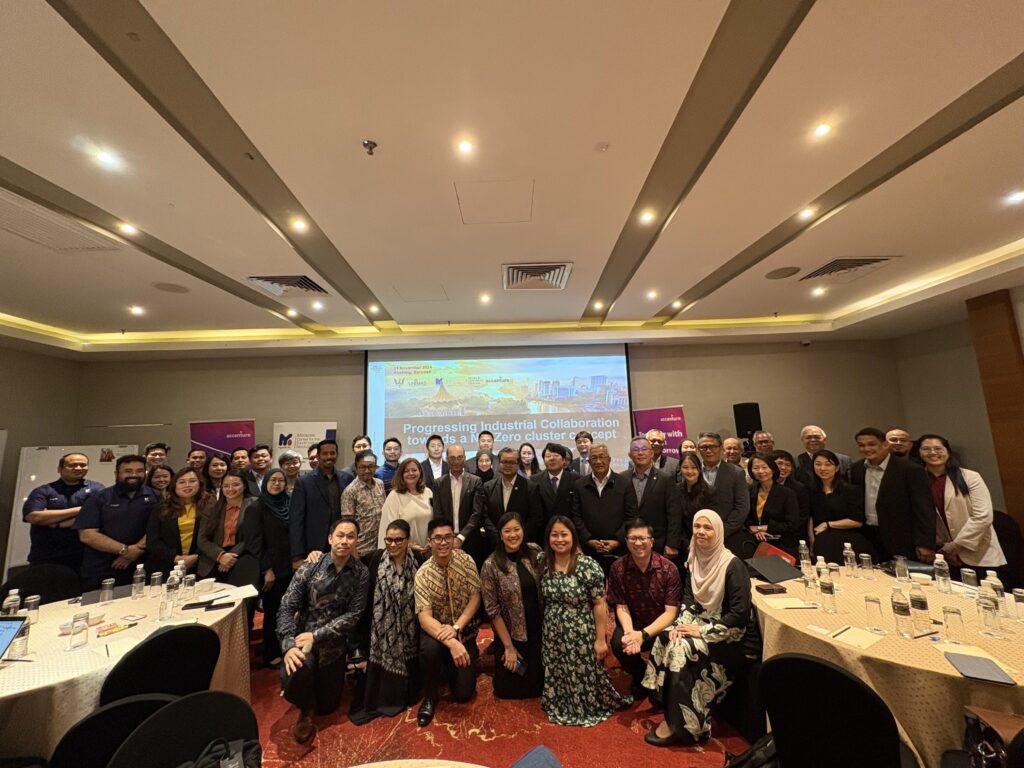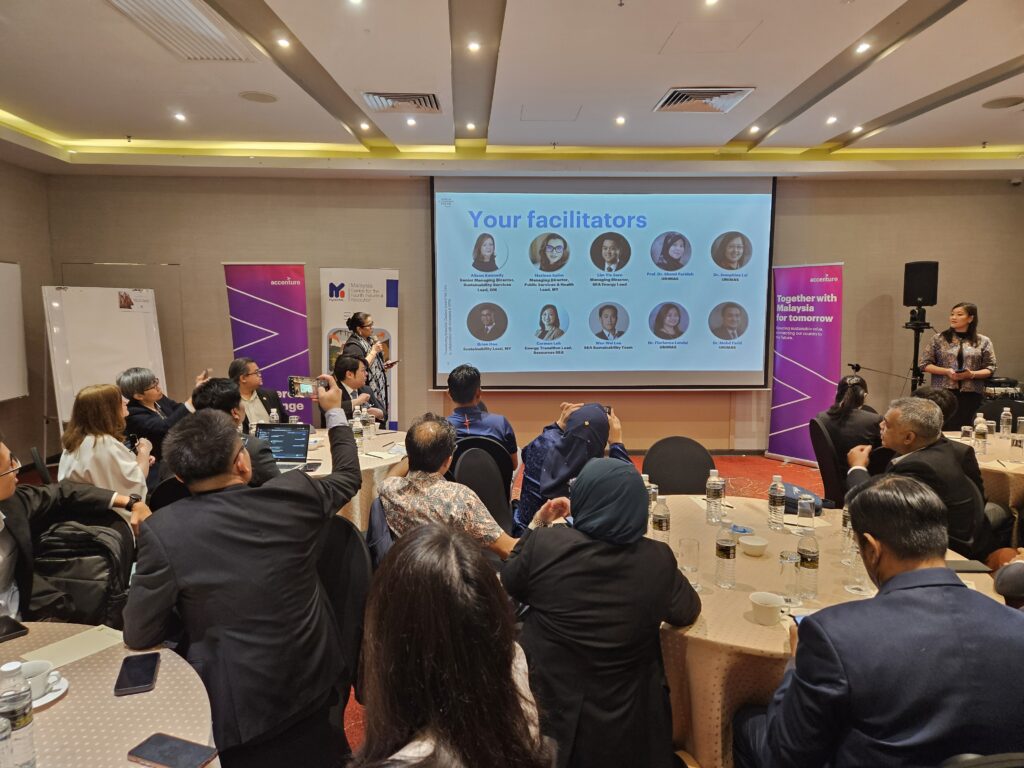Kuching, 21 November 2024 – UNIMAS, in collaboration with Accenture, who is partnering with the World Economic Forum (WEF), has made substantial progress in advancing the development of Sarawak’s first net-zero industrial cluster. This initiative is part of the Transitioning Industrial Cluster efforts under the Centre for the Fourth Industrial Revolution in Malaysia (Malaysia Center for 4IR), hosted by MyDigital Corporation. The “Progressing Industrial Collaboration towards a Net-Zero Cluster Concept” workshop highlighted UNIMAS’ alignment with global sustainability frameworks while reinforcing its commitment to advancing state-level green initiatives.

The workshop served as a platform for multi-stakeholder collaboration, addressing opportunities and challenges in transitioning Sarawak’s industrial sector toward net-zero emissions. Over 50 representatives from industries, academia, and government agencies participated in discussions aimed at developing strategies for decarbonizing Sarawak’s industrial landscape. Also present are Sarawak focal agencies in driving the green investment which are Economic Planning Unit (EPU) Sarawak and Invest Sarawak, whose contributions emphasized the state’s commitment to advancing a sustainable industrial ecosystem.
The event was facilitated by Accenture’s global sustainability team, including Alison Kennedy, Senior Managing Director and Sustainability Services Lead, Hazleen Salim, Managing Director and Public Services & Health Lead (Malaysia), Lim Yin Sern, Managing Director SEA Energy Lead, Brian Hoe, Sustainability Lead (Malaysia), Carmen Loh, Energy Transition Lead, Resources SEA and Wen Wei Lee, SEA Sustainability Team. UNIMAS was represented by facilitators Prof. Ts. Dr. Shanti Faridah binti Salleh, Ts. Dr. Josephine Lai Chang Hui, Dr. Florianna Lendai anak Michael Mulok, and Dr. Mohd Farid Atan, who contributed to discussions with their academic expertise and deep understanding of Sarawak’s local context.

The workshop featured structured discussions on key areas of decarbonization, with participants engaging in focused group sessions co-led by UNIMAS academics and Accenture experts. These discussions explored renewable energy and shared infrastructure, focusing on innovative approaches to leverage Sarawak’s renewable resources, such as hydropower and biomass. Policy frameworks and financing mechanisms were also examined to create supportive environments for green technologies and secure investments. Another key theme revolved around green hydrogen ecosystems, highlighting Sarawak’s potential as a hub for hydrogen production and its contributions to regional decarbonization. Discussions also centered on strengthening clean energy value chains to support the development and scaling of sustainable industries.
The workshop concluded with the identification of prospects for industries, academia, and government-linked agencies to participate in the net-zero industrial cluster. This outcome sets the stage for future partnerships, encouraging stakeholders to align their efforts with the cluster’s goals to collectively achieve industrial decarbonization and economic resilience.
This initiative reflects Sarawak’s broader commitment to sustainability and showcases the importance of collaboration with global partners like Accenture, WEF, and MyDigital, as well as local academic institutions like UNIMAS. By combining international frameworks with Sarawak’s unique opportunities, the workshop contributes to positioning the state as a leader in green industrial development. The collaboration aims to deliver long-term benefits, including green investments, high-value job creation, and sustainable industrial growth, supporting Sarawak’s aspirations to lead Southeast Asia in industrial decarbonization.
Author: Dr Florianna Lendai Michael , Institute of Sustainable and Renewable Energy, UNIMAS